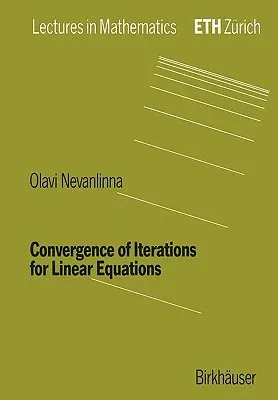Olavi Nevanlinna
(Author)Convergence of Iterations for Linear Equations (1993)Paperback - 1993, 1 June 1993

Qty
1
Turbo
Ships in 2 - 3 days
In Stock
Free Delivery
Cash on Delivery
15 Days
Free Returns
Secure Checkout
Part of Series
Lectures in Mathematics. Eth Zürich
Part of Series
Lectures in Mathematics. Eth Z]rich
Part of Series
Lectures in Mathematics. Eth Zurich
Part of Series
Lectures in Mathematics. Eth Za1/4rich
Part of Series
Lectures in Mathematics. Eth Z Rich
Part of Series
Lectures in Mathematics. Eth Z Rich (Closed)
Part of Series
Lectures in Mathematics. Eth Zurich (Closed)
Print Length
180 pages
Language
English
Publisher
Birkhauser
Date Published
1 Jun 1993
ISBN-10
3764328657
ISBN-13
9783764328658
Description
Product Details
Author:
Book Edition:
1993
Book Format:
Paperback
Country of Origin:
US
Date Published:
1 June 1993
Dimensions:
24.41 x
16.99 x
1.04 cm
ISBN-10:
3764328657
ISBN-13:
9783764328658
Language:
English
Location:
Basel
Pages:
180
Publisher:
Series:
Weight:
312.98 gm

